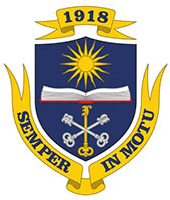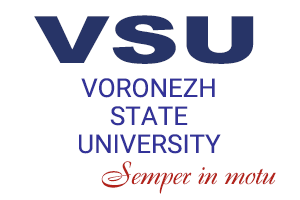A regional School of Simulation is to be opened at universities of the Voronezh Region. It will be supported by the Engineering and Technology Centre GET and the Novovoronezh branch of the Rosatom Technical Academy.
Between 4 and 10 March, the first meeting of the representatives of GET, universities of the Voronezh Region, and the Novovoronezh branch of the Rosatom Technical Academy was held in order to discuss the opening of the regional branch of the School of Simulation. The new project attracted the attention of the Novovoronezh branch of the National Research Nuclear University MEPhI (Moscow Engineering Physics Institute), Voronezh State Technical University, Voronezh Institute of High Technologies, Voronezh State University of Engineering Technologies, and Voronezh State University (a flagship university for Rosatom).
VSU was represented by Dmitry Zhukalin, Head of the Department of Innovations and Associate Professor at the Department of Semiconductor Physics and Microelectronics; Maria Burlutskaya, Dean of the Faculty of Mathematics and Head of the Department of Mathematical Modelling; Marina Silaeva, Associate Professor at the Department of Mathematical Modelling; Dmitry Lyubashevsky, Deputy Dean of the Faculty of Physics and Associate Professor at the Department of Nuclear Physics; and Larisa Titova, Head of the Department of Nuclear Physics.
The director of the school Andrey Solntsev and the counsellor Alexander Ivanchenko told the meeting about the new branch. They also gave a tour of the school.
The School of Simulation will give students a chance to learn mathematical modelling of technological processes in a number of industries, including nuclear power, thermal and hydroenergetics, mechanical engineering, automotive industry, aerospace industry, oil and gas industry, and healthcare. The training of IT engineers is performed using the company’s own software package called REPEAT.
REPEAT is a model-oriented design and mathematical modelling environment. It was first presented in 2021.
“The opening of the School of Simulation at the Novovoronezh branch of the Rosatom Technical Academy will help us to bridge the gap between the training students get at universities and the requirements set by industrial companies. The school can place students in a situation of interdisciplinary communication required for further professional growth and career”, said Konstantin Omelchyuk, head of the R&D department at GET.
The purpose of the school is to promote talented young people. While studying at the School of Simulation, students will use advanced digital simulation technologies and will then be able to work in the most popular industries. The aim of the project is to develop a personnel reserve for industrial enterprises.
The school is effectively operating at leading technical universities in Yekaterinburg, Kazan, Rostov-on-Don, Krasnodar, Tomsk, and Moscow.
Upon the opening of the School of Simulation, supported by Engineering and Technology Centre GET and the Novovoronezh branch of the Rosatom Technical Academy, the student community will gain access to the advanced technologies used by companies in the nuclear sector.
“We had our first meeting with representatives of the Novovoronezh branch of the Technical Academy – a VSU’s partner assisting the university in training bachelor’s, master’s and specialist’s degree students for the nuclear industry. Information technologies are an essential part of the education process at any university. They help to improve the quality of education and effectiveness of the education process. The use of specialised software for the simulation of the technological processes of the nuclear sector will help us to make the education process more practice-oriented. The model-oriented design and mathematical modelling environment of REPEAT developed by GET presents a comprehensive approach to the simulation process. It will help our students develop the necessary IT competences and increase their competitiveness on the labour market. I believe, we should analyse the opportunities provided by the software in more detail and consider its introduction at the Department of Nuclear Physics”, said Larisa Titova, Head of the Department of Nuclear Physics of VSU.
The meeting discussed two partnership modes. The first one is based on the existing education programmes involving workshops, laboratory training, and preparing graduate qualification papers. The other involves developing a further education programme, whose graduates will get corresponding certificates.




